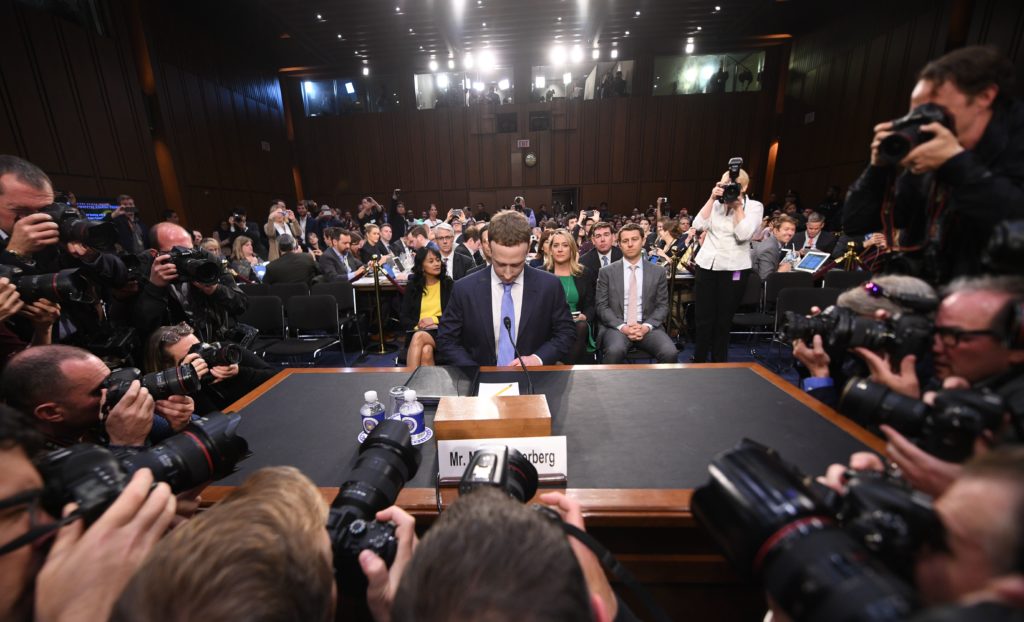Jan 6 Select Committee and Social Media Companies: 10 Key Pieces of Information to Subpoena

The legislation establishing the House Select Committee to investigate the attack on the U.S. Capitol indicates the Committee should consider the role of social media companies in two distinct but related ways:
1) How social media companies interacted with key federal intelligence and law enforcement agencies before and after the insurrection, and how social media information was utilized by those agencies in preparation for Jan. 6.
The legislation mandates the Committee to investigate “policies, protocols, processes, procedures, and systems for monitoring, assessing, disseminating, and acting on intelligence and other information” by federal, state and local agencies “derived from instrumentalities of government, open sources, and online platforms.” That provision presumably includes investigating the product of social media monitoring activities as well as any warnings and prompts from the social media companies, how such information was disseminated through the government, and what actions were or were not taken as a result of the information provided.
2) How social media played a role in propagating the false claims that motivated the insurrectionists, and served to facilitate the coordination of the attack at the Capitol.
The legislation further mandates the Committee to investigate the “facts, circumstances, and causes” of the insurrection broadly but specifically calls on the Committee to examine “how technology, including online platforms” such as Facebook, YouTube, Twitter, and Parler “may have factored into the motivation, organization, and execution” of the insurrection. This should include a look at how false voter fraud claims propagated across social networks and the role that algorithmic systems played; the formation of networks such as QAnon and Stop the Steal; and the use of groups, pages, messaging, live streaming and other platform features to facilitate the actions of insurrectionists and broadcast their exploits.
A consideration of these issues is crucial not only to the understanding of Jan. 6, but also to ongoing questions related to the role of social media in federal law enforcement and intelligence gathering — and where to draw the line to limit the government’s much abused surveillance powers while still providing for the safety of events and institutions as crucial to democracy as the certification of Electoral College votes. It is also vital to ask questions about the relationship between social media, disinformation, radicalization and domestic extremism, and ultimately incitement to violence.
In order to begin its investigation of these issues, the Select Committee should request — and better yet, subpoena — the following information from the social media companies, including Facebook, YouTube, Twitter, Parler, and TikTok:
1. Any documents produced internally reflecting on, analyzing, summarizing or warning about Stop the Steal, false voter fraud claims, QAnon, domestic extremism and the January 6 insurrection itself. Facebook’s internal report on Stop the Steal, published by BuzzFeed News, is a good example of such documents. The documents should include those in advance of Jan. 6 as well as retrospective assessments.
2. Any communications or warnings provided by the social media companies to DHS, FBI or any other law enforcement agencies regarding potential threats related to January 6, the Stop the Steal movement and related extremist activities observed on the platforms (see for example Parler’s disclosure to the House Oversight and Reform Committee)
3. Any internal company assessments or communications, warnings or other correspondence with the federal government about the QAnon conspiracy, and key groups including the Proud Boys, the Oath Keepers, and Three Percenters.
4. Any communications with law enforcement agencies discussing the creation of working relationships between the social media company and the agency related to content of relevance to the Committee (see for example Parler’s disclosure to the House Oversight and Reform Committee)
5. Any internal company threat assessments related to the “Stop the Steal” rallies in November and December 2020 in Washington DC and Stop the Steal sister rallies in multiple states on January 6.
6. Records of public communications from — and, in some circumstances, any relevant private communications between — the biggest spreaders of ‘stop the steal’ and false voter fraud claims, as well as all relevant groups and pages these individuals participated in or moderated, including from key suspended and still active influential accounts or accounts known to be controlled by the following individuals:
- Donald Trump
- Lin Wood
- Sidney Powell
- General Mike Flynn
- Charlie Kirk
- Tom Fitton
- James Woods
- Donald Trump Jr.
- Rudy Giuliani
- Ron Watkins
- Jack Posobiec
- Eric Trump
- Richard Grenell
- Lou Dobbs
- Rogan O’Handley
- Alex Jones
- Owen Shroyer
- Ali Alexander
- Roger Stone
- Mike Lindell
- Paul Gosar
- Mo Brooks
- Lauren Boebert
- For other potential members of Congress, see Rep. Zoe Lofgren’s Social Media Review and my previous summary of those findings.
7. A comprehensive account of the activities and exposure to false voter fraud claims, stop the steal and QAnon conspiracies of all charged individuals who participated in the January 6 insurrection, as well as all relevant groups and pages these individuals participated in or moderated.
8. Any record of communications on the subject of Donald Trump’s access to accounts with any federal government official, member of Congress or their staff.
9. Copies of all posts and videos removed from the platforms for violation of rules concerning false claims with regard to the election, incitement to violence or other messages related to the outcome of the election.
10. Information on the extent of algorithmic amplification or recommendation of Jan. 6 events, false voter fraud claims, stop the steal messages and related groups prior to Jan. 6.
Some of these requests may require the social media companies to invest significant engineering resources to perform these forensic activities. Therefore, these requests should be made earlier rather than later in the Committee’s investigation.


